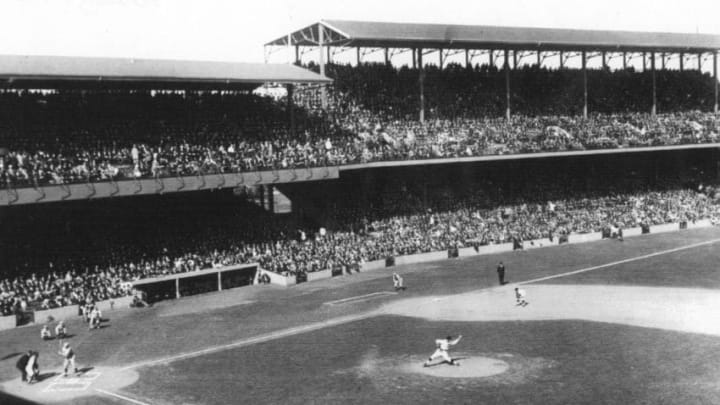
Atlanta Braves fans love to complain about the club’s current owners, I have no idea how they’d deal with the problems faced by Emil Fuchs.
Records show that 19 ownership groups or corporations owned the franchise now known as the Atlanta Braves. Of those, only a handful had any success; one nearly drove himself into the poorhouse trying to attain it. I’ve written about some of the successes in the past; this post is about the grand failure.
The first success of the 20th century came under the ownership of James E. Gaffney, a former foot-patrolman for the NYPD who worked his way up to millionaire status through his connections with Tammany Hall.
Gaffney knew nothing about baseball; he purchased the team acting as an angel for John Montgomery Ward, three days after Christmas, 1914. Aside from money, Gaffney is responsible for changing the name from the Rustlers to the Braves. Not coincidentally Braves was also the nickname for Tammany Hall; the headdress logo also mirrored that of Tammany Hall.
Ward hired Gene Stalling to manage the team that became known as the Miracle Braves. Success eluded the team following the miracle run and following the 1916 season, Gaffney sold the team to a former college football coach, Percy Haughton. After three years of losing Haughton sold the team to Broadway producer George W. Grant.
Like Haughton, Grant lost money for three years and was looking to sell the team; enter our hero(?) Judge Emil Fuchs. Fuchs was a close friend of Giants owner John McGraw and loved baseball.
"McGraw and Fuchs were socializing at the Lambs Club in New York City (with) George M. Cohan, famous for the WWI song “Over There,” and noted concessions operator Harry M. Stevens, who made a fortune when he realized a hotdog at a ballgame was a winning idea. “Why, there’s George Washington Grant,” McGraw exclaimed, pointing out the owner of the Boston Braves. “Did you know you can buy his ball club for half a million dollars?”. . ."
Fuchs told McGraw he’d buy the team if he could convince his friend Christy Mathewson would act as GM. Mathewson agreed, and along with banker James MacDonough and coal mining millionaire Albert H. Powell, purchased the team — for either $300K or $500K+ depending on your source — on February 20, 1923.
